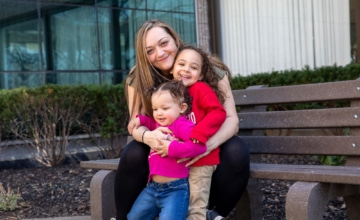Kentucky is engaged in cross-system collaboration to meet the needs of young children with substance-abusing parents involved with the child welfare system.
The Kentucky Sobriety Treatment and Recovery Team (START) program uses an intensive intervention model that integrates addiction services, family preservation, community partnerships, and best practices in child welfare and substance abuse treatment. This intensive child welfare program for families with co-occurring substance use and child maltreatment is delivered in an integrated manner with local addiction treatment services. The program aims to reduce recurrence of child abuse and neglect, improve substance abuse disorder (SUD) treatment rates, build protective parenting capacities, and increase the county’s and state’s capacity to address co-occurring substance abuse and child maltreatment. It was adapted in 2006 from the START model developed in Cleveland, Ohio.
START pairs specially trained child protective service (CPS) workers with family mentors, who have at least three years of sobriety and previous involvement with CPS, to work with families. The program also partners with substance abuse treatment providers to ensure START participants have quick access to intensive treatment. Decision-making is shared among all team members, including the family and court.
START has served over 1,000 families including 1,690 adults and over 2,200 children between 2006 and early 2018. START is operating in 5 counties across the state, including the three most populated areas in Kentucky – Louisville, Lexington and outside of Cincinnati. The program is directed and funded by the state CPS department (the Kentucky Department for Community Based Services) in partnership with local treatment providers and with consultation on early childhood mental health needs from the state behavioral health office (Kentucky Department for Behavioral Health, Developmental and Intellectual Disabilities).
Recent research has found that mothers who participated in START achieved sobriety at nearly twice the rate of mothers treated without START. The program has also proven to be effective at keeping children at home. Children in families served by START were half as likely to be placed in state custody as compared with children in a matched control group. It was found that at case closure, over 75% of children served by START remained with or were reunified with their parent(s). A recent cost analysis found that for every $1 spent on START, the state avoids $2.22 in the cost of foster care. START has also been successful in bringing much-needed support services to underserved areas.
In early 2016, START was given a provisional scientific rating of 3 (Promising Research Evidence) and a provisional high rating for Child Welfare System Relevance Level through the California Evidence-Based Clearinghouse for Child Welfare.




